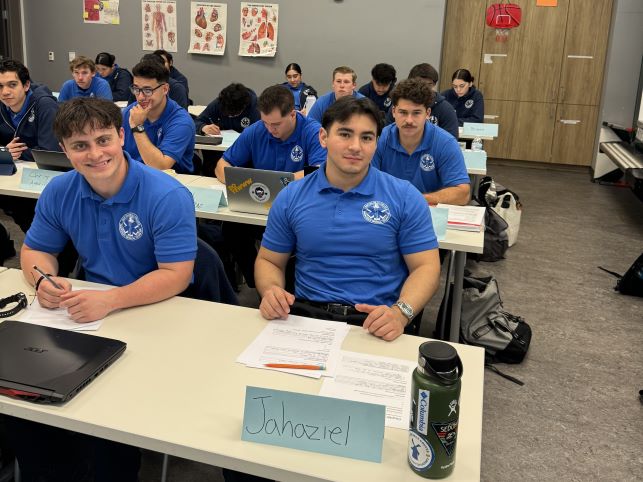Transforming EMS Education: Prof. Laurie Green's Innovative Approach to Increase Student Success
Publish Date: March 1, 2024

High drop-out (attrition) rates in emergency medical services (EMS) programs challenge program directors at community colleges across the state, however at CHC, EMS Program Director Laurie Green is using research to help students successfully complete the program.
Green began studying the high drop-out issue in 2017, when she noticed that students entering the program, especially first-time college students, were not completing the program.
She observed that neighboring community colleges had attempted to improve their completion rate by requiring EMS students to take a prerequisite introductory emergency medical response course that provided them with a familiarity with the field before joining the program.
Instead of imposing an additional coursework barrier, Green decided on a different strategy by seeking to understand the challenges EMS students faced and finding ways for students to overcome these challenges and thus reduce the drop-out rate.
Green started by examining successful students and subsequently made some modifications to the program based on what she learned. For example, on the first day of class, she had students obtain their badge, log in to the three-course learning management systems they would need, and access the Pronto communication platform. This orientation reduced technical problems students might have had accessing the online tools they will need.
Green also stresses the importance of new students scheduling time for studying outside of the classroom and provides guidance and tips on how to do that. She gained funding to provide students with extra opportunities to practice critical skills and review weekly concepts with professional experts (i.e., tutors) outside of the classroom meetings. Student surveys have revealed that this practice has been helpful.
As new components were integrated, Green continually assessed and fine-tuned the program, categorizing students into three groups: completers, repeaters, and defeaters. The fundamental question guiding her adjustments was "How can we modify the program to transform defeaters into repeaters and repeaters into completers?"
She recognized a shared characteristic among the defeaters: perceiving obstacles as failures and engaging in detrimental self-talk that eroded their self-confidence. In addressing the problem and aiming to enhance students' self-awareness, Green introduced a new tool to the program: Kristin Neff’s Self-Compassion scale. Administered at the program's outset, this self-assessment assists students in gaining insights during moments of perceived failure or inadequacy.
Analyzing the data, Green quickly discerned that students tended to respond based on perceived expectations rather than expressing genuine thoughts.
Armed with this insight, Green implemented a new approach on the program's first day. She began referring to them as EMTs. This self-actualization technique is a straightforward yet impactful alteration that influenced the students' view of themselves as genuine Emergency Medical Technicians (EMTs).
To enhance confidence, Green introduced a fresh approach by scattering equipment and scenarios across the classroom without offering any instructions or training. Students were assigned the challenge of collaborating, and problem-solving, and, as a result, acknowledged their proficiency in executing the assigned tasks. This unguided experience revealed their capability to excel in the field and ignited a newfound enthusiasm for learning in this hands-on environment.
Green persistently examines student feedback, self-assessment surveys, and the impact on student success, then refines the program, utilizing the outcomes of her research to present at conferences of organizations such as the Western Psychological Association. Additionally, she seeks insights from fellow educators and experts studying teaching or behavior dynamics, intending to gather expertise at the upcoming annual convention for the Society for Personality and Social Psychology this spring.



